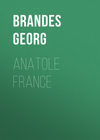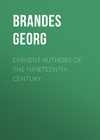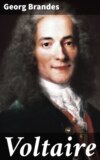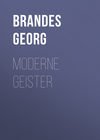Loe raamatut: «Main Currents in Nineteenth Century Literature – 3. The Reaction in France», lehekülg 12
XI
ROMANTIC DUPLICATION AND PSYCHOLOGY
Those among my readers who have stood in a room lined with mirrors, and seen themselves and everything else reflected ad infinitum, above, below, on every side, have some idea of the vertigo which the study of Romantic art at times produces.
Every one who has read Holberg's Ulysses von Ithacia remembers how droll the effect is when the characters, as they are perpetually doing, make fun of themselves and what they represent – when, for example, Ulysses exhibits the long beard which has grown during the ten years' campaign, or when we read upon a screen, "This is Troy," or when, at the close, the Jews rush in and tear off the actor's back the clothes which he had borrowed to play Ulysses in. Histrionic art, as every one knows, depends for its effect upon illusion. And illusion is an aim common to many of the arts. A statue and a painting deceive quite as much as a play, the illusion being contingent upon our momentarily taking the stone for a human being, and the painted flat surface for receding reality, in exactly the same way as we forget the actor in his rôle. This illusion, however, is only complete for a moment. It is, indeed, possible for the perfectly uneducated man to be entirely deceived. An Indian soldier in Calcutta shot an actor who was playing the part of Othello, exclaiming: "It shall never be said that a negro murdered a white woman in my presence!" But in the case of the educated man, the illusion comes and goes; it comes at the moment when the tragedy brings tears into his eyes, and goes at the moment when he draws out his pocket-handkerchief and looks at his neighbour. The effect of the work of art is, as it were, focussed in this illusion. The illusion is the reflection of the work of art in the spectator's mind – the appearance, the play, by means of which the unreal becomes reality to the spectator.
In the simple, straightforward work of art no special attention is devoted to illusion; it is not aimed at; nothing is done to strengthen it or to give it piquancy; but still less is anything done to destroy it.
It is not difficult, however, to understand how a certain piquant quality may be communicated to the illusion produced by any art. When, for instance, a Hermes, or any idol, is represented on a bas-relief, when a picture represents a studio or a room with pictures hanging on the walls, a strong indication is hereby conveyed that the bas-relief itself is not intended to affect us as statuary, nor the pictures as painting. And the same sort of effect is produced when one or other of the characters in a comedy cries: "Do you take me for a stage-uncle?"
The theatrical illusion is still further heightened, or, to be quite correct, is still more entirely forgotten, when some of the characters in a play themselves perform a play, as in Hamlet or A Midsummer Night's Dream. It seems extraordinary or impossible that the spectators of this second play should also be acting. The illusion here is artificially strengthened, and yet at the same time weakened, by attention being drawn to it. It is plain that this play with illusions had an immense attraction for Tieck; it was inevitable that it should have. Since it is illusion which makes art serious reality to the spectator, it is by the destroying of the illusion that he is made to feel strongly that art is free, fanciful play.
So Tieck mocks ironically at things which are usually ignored in order not to disturb the illusion. In Puss in Boots the King says to Prince Nathaniel: "But do tell me; how is it that you who live so far away can speak our language so fluently?" Nathaniel: "Hush!" The King: "What?" Nathaniel: "Hush, hush! For any sake be quiet, or the audience too will be finding out how unnatural it is." And, sure enough, one of the spectators presently remarks: "Why in the world can't the prince talk a foreign language and have it translated by his interpreter? What utter nonsense it all is!" This last speech is of course sarcasm, aimed at that demand for realism in art of which Iffland and Kotzebue were advocates. We have one expression of the demand in question in the French misconception of the Aristotelian doctrine of the unity of time and place. Writing on this subject, Schlegel, following Lessing's example, remarked that, after one had taken the great plunge and agreed to regard the stage as the world, it was surely easy to take the lesser one and sometimes permit the said stage to represent different localities. And the Romanticists were never weary of extolling the old Shakespearian theatre (where the place represented was simply intimated by a label attached to the scenes) as a higher development of art than that of their own day. The champions of realism in art were at that time advocating the substitution of solid walls for scenes; Schlegel maintained that those who insisted on having three walls on the stage were logically obliged to go a step farther and have a fourth wall, on the side towards the audience.
It is out of pure defiance of the philistine conception of art that Tieck amuses himself by seating an audience upon the stage and having the play within the play performed to the accompaniment of their critical remarks. They censure, they praise, now condemning a scene as superfluous, now approving the author for his courage in introducing horses upon the stage. While the learned man and the fool are disputing in the palace before the king upon his throne, the former says: "The gist of my argument is, that the new play Puss in Boots is a good play." "That is exactly what I deny," says the fool; whereupon one of the audience cries in amazement: "What! the play itself is mentioned in the play!"
A still more extraordinary state of matters prevails in Die Verkehrte Welt ("The Topsy-turvy World"). As Scaramouch is riding through the forest on his donkey, a thunderstorm suddenly comes on. One naturally expects him to take shelter. Not at all. "Where the deuce does this storm come from?" he cries; "there's not a word about it in my part. What absurd nonsense! My donkey and I are getting soaked. Machinist! machinist! hi! in the devil's name stop it!" The machinist enters and excuses himself, explains that the audience had expressed a desire for stage-thunder, and that he had consequently met their wishes. Scaramouch entreats the audience to change its mind, but to no purpose; thunder they will have. "What! in a sedate historical play?" It thunders again. "It's a very simple matter," says the machinist; "I blow a little pounded colophony through aflame; that makes the lightning; and at the same moment an iron ball is rolled overhead, and there you have the thunder." Play with illusion cannot be carried further than this except by introducing in the play which the performing audience is witnessing, another play acted before yet another audience. "How extraordinary it is!" says Scävola, the blockhead; "we are an audience, and yonder sit people who are an audience too." The plays are fitted into one another like puzzle-boxes.
The madness reached its climax when, within this new inmost play, there appears yet another play. It is confusion worse confounded. "Nay, this is too much," cries Scävola. "Just think of it, good people all! Here we sit as an audience and watch a play; in that play sits another audience watching a third play, and for the actors in that third play yet another play is being acted." And he goes on to explain, like a true Romanticist: "One often has dreams like this, and they are terrible; and thoughts, too, sometimes spin themselves in this fashion ever farther and farther into the heart of things. And both the one and the other are enough to drive a man crazy."
But the music between the acts contains the key to the whole work. The lively Allegro says: "Do ye indeed know what ye desire, ye who seek for coherence in all things? When the golden wine gleams in the glass and ye are animated by its good spirit, when ye feel doubly full of life and soul, and all the floodgates of your being are opened, what do ye think of then? Can ye order and regulate then? Ye enjoy yourselves and the harmonious confusion." And the Rondo says: "Whenever the philosopher is surprised by a thing, and cannot understand it, he exclaims: 'There is no reason in it.' Nay, when reason penetrates to the heart of itself, when it has investigated its own inmost being and carefully observed itself, it says: 'In this, too, there is no reason.' … But the man who with reason despises reason, is a reasonable man. Much poetry is prose gone mad, much prose is only crippled poetry; that which lies between poetry and prose is not the best either. O music! whither tend thy steps? Neither is there any reason in thee."
In his critical writings Tieck himself gives us the clue to his procedure by averring that the aim of Romantic comedy is to lull the spectator into a dreamy mood. "In the midst of a dream," he says, "the soul often does not believe firmly in its visions; but if the dreamer sleeps on, the endless succession of new magic appearances restores the illusion, keeps him in a charmed world, makes him lose the standard of reality, delivers him up at last completely to the dominion of the incomprehensible."
Music is the formless deep to which the wearied imagination of the Romanticist returns after contemplating itself reflected ad infinitum in its mirror chamber. And the work of art may be likened to one of those carved ivory balls which enclose a whole set of ivory balls, one within the other.
This style of drama was amusingly parodied by J. L. Heiberg in his witty satirical play, Julespög og Nytaarslöjer ("Christmas Fun and New Year's Drollery"). There is less freedom and originality in Hoffmann's imitation, Prinzessin Blandina, in which, in scenes laid behind the scenes, the Stage Manager and the Director discuss the play. The Stage Manager says: "Machinist, give the signal for night." Director: "Why, you are surely not going to have night already? It will disturb the illusion. It is hardly three minutes since Roderick breakfasted in the desert." Stage Manager: "It is the direction given in the book." Director: "Then it is the book that is crazy, and the play is written without the slightest understanding of dramatic art."
In a different department of literature, in the writings of our Danish philosopher, Kierkegaard, we come upon the mirror chamber with its repeated reflections psychologically applied. As the German Romanticist ironically hovers above his own play, with its Chinese puzzle-box scenes and figures, so the Danish psychologist draws further and further away from his subject by putting one author, as it were, inside another. Listen to his explanation in the Afsluttende Efterskrift ("Concluding Postscript"): "My position is even a more external one than that of any author whose characters are imaginary, but who appears personally in his preface. A prompter, impersonal, or personal in the third degree, I have created authors whose prefaces, nay, whose very names are their own production. In the pseudonymous books there is not a word of my own; I judge them as an uninterested third party, have no knowledge of their meaning except that of the ordinary reader, and not the most remote private connection with them, as is indeed impossible in the case of a doubly reflected communication. A single word from me personally, in my own name, would be a piece of presumptuous self-forgetfulness, and would, from the dialectical point of view, destroy the pseudonymous character of the work. I am no more the publisher, Victor Eremita, than I am the Seducer or the Assessor in Enten-Eller; Eremita is the poetically real subjective thinker, whom we meet again in In Vino Veritas. In Frygt og Bæven ("Fear and Trembling") I am no more Johannes de Silentio than I am the Knight of Faith whom he depicts; and just as little am I the author of the preface to the book, it being a characteristic utterance of a poetically-real subjective thinker. In that tale of woe, Skyldig? – Ikke Skyldig? ("Guilty or not Guilty?"), I am no more the experimenter than I am the subject of the experiment, since the experimenter is a poetically-real subjective thinker, and the being he experiments on is his psychologically inevitable production. I am a negligeable quantity, i.e. it is immaterial what I am… I have all along been sensible that my personality was an obstruction which the Pseudonymi must involuntarily and inevitably long to be rid of, or to have made as insignificant as possible, yet which they at the same time, regarding the matter from the ironical and reflective standpoint, must desire to retain as repellant opposition; for I stand to them in the ironically combined relation of secretary and dialectically reduplicated author of the author or authors."
However different the causes of the reduplication may be in this case, the phenomenon itself is of near kin to the foregoing one. To keep the general public at a distance, to avoid laying bare his heart, and, most important of all, to avoid the tiresome responsibility entailed by speaking in his own name, Kierkegaard places as many authors between himself and the public as possible. Even taking his reasons into consideration, I confess that to me the proceeding seems super-subtle, a sort of reminiscence of the Romantic irony. For although Kierkegaard, as regards his matter, is in many ways ahead of Romanticism, he is still connected with it by his style. It is natural enough that he cannot, or will not, bear the responsibility for what his imaginary characters, the Assessor and the Seducer, say; but it is pure imagination on his part to suppose himself capable of producing his authors at second hand, to suppose, for instance, that he has created the hero in the Engagement Story exactly as Frater Taciturnus would have created him. Several of his would-be authors, Constantin Constantius and Frater Taciturnus, for example, are scarcely to be distinguished from one another, and there is nothing peculiarly characteristic about their productions. The third part of Stadierne ("Stages on the Road of Life") was, as Kierkegaard's own memoranda show, originally intended to form part of Enten-Eller. When he remarks (in Afstuttende Efterskrift, p. 216) that the most attentive reader will hardly succeed in finding in that work, either in language or turn of thought, a single reminiscence of Enten-Eller, he betrays great capability of self-deception. Both works show in every line that they are written by the same author; in both we come upon the same thoughts, often expressed in almost the same words. The Assessor in Stadierne judges Aladdin exactly as he is judged by the Æsthete in Enten-Eller: "What makes Aladdin so great is the strength of his desire."
Along with all this duplication and reduplication we have in the case of the Romanticists the wildest caprices in the matter of the order of presentation. The Topsy-turvy World begins with the epilogue and ends with the prologue; by such pranks imagination proclaims its independence of all law. Frater Taciturnus records what happened to him last year along with what is happening to him this year; every day at noon he notes down what happened that day a year ago (What a memory!), and at midnight what has occurred during the day. Naturally, it is almost impossible to separate the two threads of event. In Hoffmann's Kater Murr, the cat writes its memoirs on sheets of paper which have its master's, Kapellmeister Kreisler's, memoranda on the other side. Both sides of the sheets are printed, the one following the other, so that we read two utterly unconnected manuscripts mixed up with each other, often with interruptions in the middle of sentences or words. Wilfulness, caprice, play with one's own production could scarcely be carried farther. Yet the dissolution of established form did go further, much further. The Romanticists did not rest content with having shattered the conventions of art; they proceeded to decompose the Human personality, and that in many different manners.
It was Novalis who led the way. In Heinrich von Ofterdingen the hero seems to have a foreknowledge of everything that happens to him. "Each new thing that he saw and heard seemed only to shove back bolts, to open secret doors in his soul." But the strangest impression of all is produced on him by his discovery of a mysterious book in the cave of the hermit Count of Hohenzollern, a book in which, although he is as yet unable to interpret it, he finds the enigma of his existence, an existence beginning before his birth and stretching into the future after his death. Novalis's romance being an allegory and myth, his design being to make a single individual represent the whole eternal story of the soul, he turns to his purpose one of the oldest hypotheses of humanity, the idea that the individual reappears generation after generation. Thus the past and the future take part in the present, in the shape of memory and prophetic intuition. He does not actually believe in the transmigration of souls, but to him, the Romanticist who lives in the contemplation of the eternal, time is of such subordinate significance that, just as he recognises no difference between a natural and a supernatural event, so he sees none between past, present, and future. In this way the individual existence is extended throughout an unlimited period of history.
In Danish literature we find this Romantic use of the idea of a previous existence in Heiberg's De Nygifte. The mother is telling her adopted son about the death of her real son: —
"Den Morgen, da ban led sin skrækkelige Dom,
Endnu var det neppe daget —
Traadte Slutteren ind og sagde: 'Kom!
Klokken er nu paa Slaget.'
"Da sank ban for sidste Gang til mit Bryst
Og udbröd: 'Et Ord du mig give,
Et kräftigt Ord, som kan vaere min Tröst
Paa min sidste Gang i Live!"
"Og jeg sagde …
Men, Fredrik, du skræmmer mig! sig …
Du rejser dig … hvad bar du i Sinde?
Du stirrer paa mig saa bleg som et Lig …
Fredrik
"O Moder! Moder! hold inde!
Du sagde: 'Naar du for din Frelser staar,
Da sig: Min Gud og min Broder,
Tilgiv mig for dine Martyrsaar,
For min Anger og for min Moder.'
Gertrud
"Ha! hvoraf ved du det?
Fredrik
"Mig det var,
Forst nu mig selv jeg fatter.
Det er din virkelige Sön, du har,
Og nu lever han Livet atter."45
Heiberg here makes a beautiful and ingenious use of the idea. But the Romanticists are not content with this. It is not enough for them to transpose the personality into the past, or to deck it with the bright peacock's tail of future existences. They split the Ego into strips, they resolve it into its elements. They scatter it abroad through space, as they stretch it out through time. For the laws of space and time affect them not.
Self-consciousness is self-duplication. But it is an unhealthy self which cannot overcome and master this selfduplication. This we saw in the case of Lovell and of Roquairol. There is no greater misery than morbid self-contemplation. He who indulges in it separates himself from himself, observes himself from the point of view of a spectator, and ere long experiences the horrible feeling of the prisoner who, when he looks up, sees the eye of the warder at the little glass pane in the door of his cell. His own eye has become quite as terrible to him as another man's. What tends to make this condition permanent is partly the religious and moral feeling that one ought never to lose sight of, but to be always labouring at and improving one's self, and partly natural curiosity regarding the unknown; one looks upon one's self as a country, the coast of which is known, but the interior of which is still to be explored.
In the case of the man who is healthy in mind and body, this exploration goes on slowly, almost imperceptibly. One fine day the poor prisoner, looking up from his work, finds that the eye has disappeared from the peep-hole. Only now does he begin to breathe, to live. Whether his work be important or unimportant, divine or merely useful, whether he be a Michael Angelo or a cork-cutter, from that moment there is a feeling of balance and unity in his mind; he feels that he is an entire being. In the case of sickly, inactive natures, the eye is never removed from the peep-hole, and a long continuation of this condition leads the individual to the verge of madness. But it is to this very condition that the Romanticists cling. It is this which gives birth to the Romantic idea of the "Doppelgänger,"46 an idea which finds its first expression in Jean Paul's Leibgeber-Schoppe (in the meditation on Fichte's Ego), and is to be found in almost all Hoffmann's tales, reaching its climax in his chief work, Die Elixire des Teufels. It crops up in the writings of all the Romanticists; we have it in Kleist's Amphitryon, in Achim von Arnim's Die beiden Waldemar, in Chamisso's poem, Erscheinung, and Brentano treats it comically in Die mehreren Wehmüller. To Hoffmann the Ego is simply a disguise worn on the top of another disguise, and he amuses himself by peeling off these disguises one by one. He carries out what Roquairol only suggested.
Theodor Hoffmann's life explains the peculiar form which Romantic self-duplication took in his case. He was born in Königsberg in 1776, the son of parents whose inharmonious union was soon dissolved. His mother belonged to a painfully well-regulated and conventional family; his father was as eccentric as he was clever, and had irregular habits which were a great affliction to his wife's relations. Theodor lost his mother early, and the pedantic severity with which his uncle brought him up only made the gifted boy's occasional wild outbursts wilder and madder. He found vent for his feelings in peculiar musical compositions and remarkably clever caricatures. He studied law as a profession, but at the same time devoted much attention to music. At an early age he fell in love with a young married woman. Feeling that the violence of this passion was undermining his reason, he cured himself of it by tearing himself away from his native town, at the age of twenty.
Soon after this he received a government appointment in Posen. The wild dissipation which prevailed in Poland in those days carried him completely off his feet and materially altered his character. For caricaturing one of his superiors he was removed to Plozk, where he led a more regular life.
In 1804 he was transferred to Warsaw, at that time a Prussian town; and it was the full, varied, and, to a German, quite foreign life of this important city which gave Hoffmann's literary tendencies their decisive, final bent. Much that is mad and strange in his writings may be attributed to the wild, reckless joviality of the Warsaw days. In Warsaw he met Zacharias Werner, another author who was distinctly influenced by the social life of Poland in the beginning of the century. And here, whilst conscientiously fulfilling the duties of his appointment, he not only found time to cultivate his favourite art, music, and to frequent the society of other musical devotees, but also managed to decorate several halls with frescoes, to ornament a library with alto-reliefs executed in bronze, and to paint a room in the Egyptian style, adroitly introducing amongst the extraordinary representations of Egyptian gods, caricatures of his acquaintances, whom he provided with tails and wings. It was in Warsaw too that he conducted concerts for the first time.
In 1806, as every one knows, Prussian rule in Warsaw came to an end. Hoffmann saw the streets of the town crowded, first with the vanguard of the Russian army – Tartars, Cossacks, and Bashkirs – then with Murat's troops, watched the migrations of the races set in motion by Napoleon's campaign, and at last saw Napoleon himself, whom he, the good German, abhorred as a tyrant. In Dresden, in 1813, he was eye-witness of several small skirmishes and one battle; he walked over a battlefield, lived through a famine and a species of plague which followed in the train of the war – in short, his imagination was fertilised by all the horrors of the period, the first result being, characteristically enough, merely a set of funny caricatures of the French.
When still quite a young man, he had married a beautiful Polish lady, who made him a devoted and patient wife; it was probably thanks to her that, in spite of his overstrained nerves, he lived as long as he did. His marriage by no means precluded many passionate attachments to other women, but all these seem to have had their root rather in imagination than in any real feeling. Three days after a young lady with whom he was madly in love had engaged herself to another, he was perfectly happy, having cured himself of his passion by satirising it. He was helped to bear his woe by the pleasure of caricaturing it.
After figuring as a theatrical architect in Bamberg and conductor of an orchestra in Dresden, he went to Berlin, where he spent the last years of his life as a member of the Kammergericht (one of the principal courts of justice). As was natural, the astonishingly gifted man who could write books, improvise on the piano, compose operas, draw caricatures, and scintillate wit when he was in the humour, became a lion in social circles and a fêted frequenter of the taverns. He devoted a great share of his energy and talent to the observation of his own moods, which he watched closely and described day by day in a kind of diary.
Wine, which he only regarded as an exciting stimulant, was in reality much more than this to him. To it he owed much of his inspiration, his visions, those hallucinations which at first were fanciful, but became ever more serious. In his case intoxication actually produced a new kind of fantastic poetry. When under the influence of alcohol, he saw the darkness suddenly illuminated by phosphorescent light, or saw a gnome rise through the floor, or saw himself surrounded by spectres and terrible grimacing figures, which went on disappearing and reappearing in all kinds of grotesque disguises.
It was almost inevitable that this painstaking observer of his own moods and of the external peculiarities, more especially the oddities, of other men, should care little about nature. If he took a walk in summer, it was only to reach some place or other where he would be certain to meet human beings; and he seldom passed a pastry-cook's or a tavern without dropping in to see what kind of people frequented it. This explains the striking want of any feeling for fresh, open-air nature in his books. His mind was at home in a tavern, not in forest solitudes. But if his sense of the beauties of nature was weak, his enthusiasm for art was so much the more intense; genuine Romanticist that he is, half of his productions treat of art.
The peculiar, Romantic theory of human personality held by a poet of this temperament and this development was a product of over-impressionable and over-strained nerves and of irregular living. In his diary I find the following memoranda: —
"1804. – Drank Bischof at the new club from 4 to 10. Frightfully agitated in the evening. Nerves excited by the spiced wine. Possessed by thoughts of death and Doppelgänger.
"1809. – Seized by a strange fancy at the ball on the 6th; I imagine myself looking at my Ego through a kaleidoscope – all the forms moving round me are Egos, and annoy me by what they do and leave undone.
"1810. – Why do I think so much, sleeping and waking, about madness?"
It was a settled conviction with Hoffmann that when anything good befalls a man, an evil power is always lurking in the background to paralyse the action of the good power. As he expresses it: "The devil thrusts his tail into everything." He was haunted, says his biographer, Hitzig, by a fear of mysterious horrors, of "Doppelgänger" and spectral apparitions of every kind. He used to look anxiously round while writing about them; and if it was at night, he would often wake his wife and beg her to keep him company till he had finished. He imparted his own fear of ghosts to the characters he created; he drew them "as he himself was drawn in the great book of creation." It does not surprise us to learn that of his own works, he preferred those which contain the most gruesome pictures of madness or the weirdest caricatures —Brambilla, for instance.
He relies for effect, in a manner which soon becomes mannerism, upon the sharp contrasts with which he ushers in his terrific or comical scenes. From the commonest, most prosaic every-day life we are suddenly transported into a perfectly distorted world, where miracles and juggling tricks of every kind so bewilder us that in the end no relation, no species of life, no personality, seems definite and certain. We are always in doubt as to whether we are dealing with a real person, with his spectre, with his essence in another form or other power, or with his fantastic "Doppelgänger."
In one of the lighter tales of Hoffmann's last period, Der Doppelgänger, the two principal characters resemble each other so closely that one is constantly being taken for the other; the one is wounded instead of the other; the betrothed of the one cannot distinguish him from the other, &c., &c. All kinds of absurd mistakes are made possible, and the dread of "Doppelgängerei" is turned to good account. The common-sense explanation of the matter is insisted on (much as it is in Brentano's Die mehreren Wehmüller), simply because Hoffmann for once, by way of a change, fancied making some attempt at explanation. The explanation, as a matter of fact, explains nothing. All Hoffmann really cared for was the fantastically gruesome effect, just as all Brentano cared for was the fantastically comical one. Der Doppelgänger possesses no artistic merit.
There is wittier and more audacious invention in the tale, The Latest Adventures of the Dog Berganza. In the first place, we are left uncertain whether the dog is a metamorphosed human being or not; he himself says: "It is possible that I am really Montiel, who was punished by being compelled to assume the shape of a dog; if so, the punishment has been a source of pleasure and amusement." In the second place, even the dog, as dog, sees himself duplicated, and is conscious of the dissolution of the unity of his being. "Sometimes I actually saw myself lying in front of myself like another Berganza, another which yet was myself; and I, Berganza, saw another Berganza maltreated by the witches, and growled and barked at him."

















